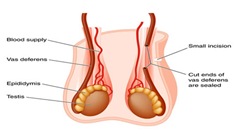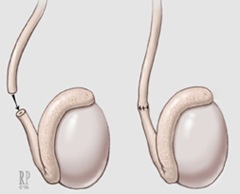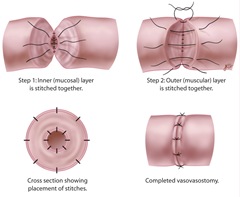Microsurgery is a specialized surgical discipline that involves the use of precision instruments and microscopes. It helps in repairing intricate structures such as nerves, vessels, and tissues. Microsurgeons receive training to operate on the smallest of tissues and nerves. The field is dedicated to restoring function in individuals suffering from congenital anomalies, cancer, and trauma.
Many plastic surgeons and urologists rely on microsurgery to perform different procedures. These include transferring tissue from one part of the body to another, composite tissue transplantation, replantation, or reattachment of various body parts.
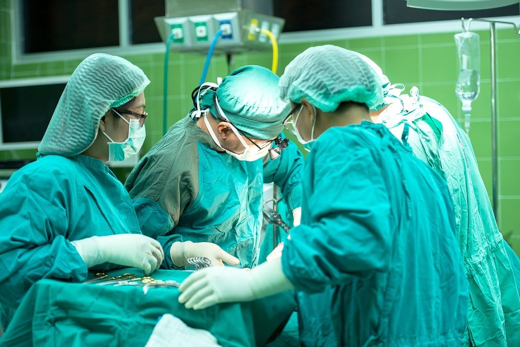
(Source)
Microsurgeons can perform a wide range of individualized operations. Microsurgical reconstruction is a complex reconstructive surgery that solves problems better than other options such as skin grafting, primary closure, and regional and local flap transfer.
Who is a Microsurgeon?
Microsurgeons perform all type of surgeries that involves microscopic procedures. Apart from reconstructive and plastic surgery, microsurgeons are advancing in many fields. They can now perform numerous surgeries safely and efficiently. Their abilities expand the scope of treatments greatly.
By enhancing their skillset, microsurgeons help patients overcome severe injuries. They do so using innovative techniques rather than traditional methods. Microsurgeons can perform surgeries via special operating microscopes. They can transplant tissues, bones, muscles, and other body parts. They inspect the area using a high-power microscope and execute different surgeries. This way, they can carefully move and reattach the nerves and blood vessels carefully. This way, the transplanted tissue will stay and live in the new position.
A microsurgeon can take tissue from the back or leg, reattach the fingers, reattach the breast, or perform plastic surgeries. They can also reconstruct tongues, toes, fingers, hands, noses, ears, and other parts of the body. Microsurgeons usually handle and manage complicated surgeries such as trauma and cancer. Microsurgery cases are challenging and help with reconstructive and plastic surgery, as well as urological procedures such as vasectomy reversal.
What Does Microsurgery Involve?
Surgeons use various tools to operate and repair nerves, tissues, and blood vessels. Here are some of the tools that they use:
· Bright Light Source
It helps the surgeon maintain proper visibility in the operating theatre.
· Microscope
This device helps surgeons magnify the target and visualize the monitor for better procedures.
· Specialized Needles and Thread
These instruments help surgeons with stitching
· Forceps and other Instruments
Surgeons use specialized instruments to allow precision and prevent inaccuracy due to natural tremors.
Why is Microsurgery Performed?
Microsurgeons perform surgeries for a wide range of healthcare disorders and treatments such as plastic surgery, vasectomy, neurosurgery, orthopedic surgery, ophthalmology, and general surgery. With the advancement of microsurgical techniques and perform the following procedures:
· Transplantation
A microsurgeon can reconstruct a body part via a transplant. For instance, they will recommend a toe-to-thumb transplant and replace the thumb with the big toe.
· Replantation
In this emergency procedure, the surgeon will reattach the body part no longer attached to the body, such as the toe or finger.
· Free Tissue Transfer
A microsurgeon has the ability and skill to take tissue from one body part and reconstruct it to another. They will perform the surgery if you undergo severe surgery, and stitching and skin grafts are out of the options.
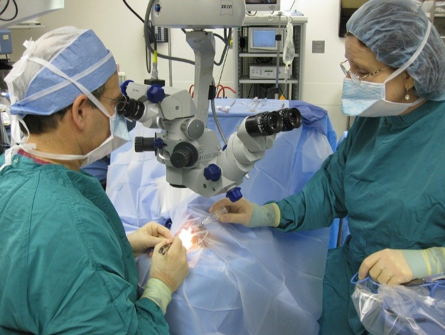
(Source)
What Training Does A Microsurgeon Receive?
· Stage 1: The Microscope
The microsurgeon will perform microscope position, parfocal, and focus exercises under training sessions. They will learn about identifying conditions by properly using microscopic instruments.
· Stage 2: Microsurgery
The surgeon will stimulate the participants to practice osteotomy, private practice setting, retro ultrasonic preparation, and retro filling on dental mannequins. They will work under a surgeons supervision and their assistance, demonstrating them to diagnose and treat the patients. Furthermore, the surgeons will learn how to use microsurgical tools and instruments for surgeries. Participants will observe and monitor the condition through a TV monitor, and the supervisors will engage them through interactions.
· Stage 3: Mannequin Microsurgery Practice
This practice will help enhance microsurgery students efficiency and confidence. During this training process, they practice microsurgical techniques on mannequins, depending on their specialization. They will use a microscope for the procedures.
Microsurgeon Training: Conclusion
At Vasectomy reversal NYC, we ensure that you receive the best vasectomy reversal treatment under the supervision of Dr. Yaniv Larish, a microsurgeon at Gramercy Surgery Center. Dr. Larish has extensive experience, training, and expertise in performing microsurgery with high-quality microsurgical instruments.
You can discuss your conditions with him, and he will suggest the best treatment options for your situation. Contact us at (646) 862-5500 and set up an appointment with the best micro-surgeon in New York City.

